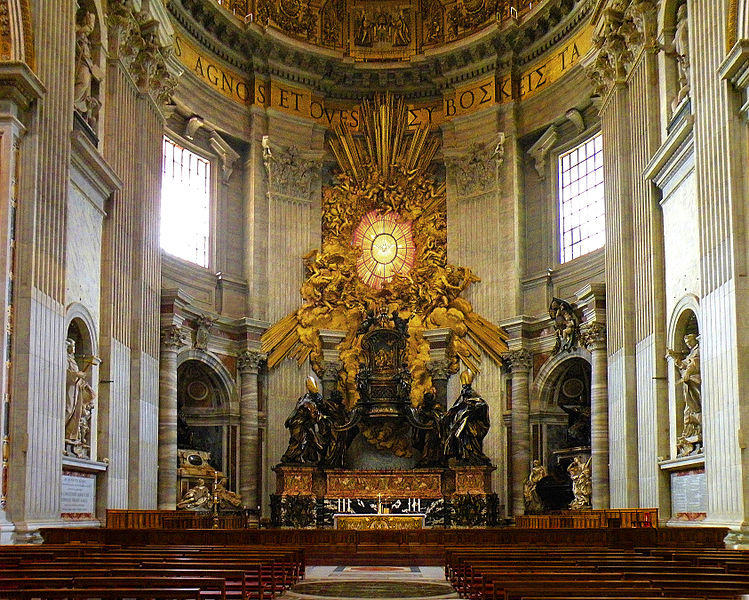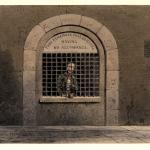by guest writer William M. Shea
An argument about the present structure of Catholic Church leadership and ministerial forms often takes historical and doctrinal shape. But my primary argument about the Magisterium and its teaching on church structure is moral, though the argument certainly has historical and doctrinal roots and implications. They (the Magisters, the hierarchy) have failed us, in fact betrayed us, and sinned in ways that call seriously into question both their political leadership of the church and the sacrality in which they have decked themselves. Their leadership has been exposed in the past century and previous centuries as devoid of the Holy Spirit, of courage and even decency. I’m not speaking here of peccadillos or venial sin. They have decisively messed up the churches and the system that supports them needs to be eliminated.
Bishops and the popes live in a dream world of imperial power and control. They must be rescued from the dream world if they are to live as Christians and lead churches decently. The church must be rid of clericalism and the claimed divinity of the hierarchy. Pope Francis and Pope John XXIII of happy memory and his Council, for all my admiration of them, are a decent starting point for reform but far from an adequate solution.
Now what do I mean when I charge irreparable failures? I cite a very few. A series of books would be needed to paint the whole picture:
The war on the modern world
They, the popes and their dedicated followers fought a three century war on Modernity and the Enlightenment. Sixty years after the Council and they are still fighting their war, now on secularization, relativism and the expansion of understandings of family. Their culture wars over the centuries distorted the proper role of Christian churches in the life of cultures, for the war is really over who owns and runs the world, it seems to me. The popes and bishops utterly failed to see that the Holy Spirit acts outside Catholic sacraments and sacramentals, and they largely failed to contribute the church’s strength to the construction of the “modern world.” What a god-awful and deeply self-interested war! And the theologians who saw the war for what it was were thrown out into “exterior darkness.” (Mt. 25:30) The excommunication of the modernist theologians at the beginning of the twentieth century, the purging of seminary faculty, and the silencing of men of the quality of Teilhard de Chardin and John Courtney Murray are prime but far from the only examples.
The Jews
The Church’s and the churches’ millennium long religious hatred of Jews and Judaism was transformed into the racial anti-Semitism of the Nazis, and lent rhetorical substance to the effort to kill all the Jews in Europe. To boot, the churches in Germany and elsewhere, and the popes, in nearly complete silence watched as millions of Jews disappeared. It is the sin against the Holy Spirit. (Mk 3:28). Attack Jews and you attack Jesus, His mother and the Twelve. Who could miss that?
The children
Thousands of American children, tens, perhaps hundreds of thousands of Catholic children and young people worldwide, have been abused by Catholic priests and bishops. Some bishops have been abusers, perhaps many, and most kept a lid on the scandal for decades. If this is not the height of corruption, it would be hard to say what is (MT 18:1-9). The silence of the lower clergy in the face of perversion of many of their colleagues doesn’t mystify me. I was trained to be one of them for eight years and was among them for almost two decades. However, I don’t think you can call ignorance ‘deliberate silence’ unless the ignorance is willful. The high clergy, including the bishops of Rome, knew perfectly well what was going on with children, certainly for decades, probably always. That much is clear from the record. Google the work of Thomas Doyle among others such as Jason Berry.
This silence of those who knew, bishops especially, was born of (a) a cultivated tendency to protect the brethren from exposure (clerical class loyalty), (b) the unwritten law demanding the avoidance of any scandal injuring the good name of the Church, and (c) the conviction that pederasty is a sin rather than a crime or a psychological state, and so must be forgiven rather than reported and punished, and (d) simple and colossal moral blindness. Bing Crosby would never have turned Barry Fitzgerald in to the cops. Neither would Des Spellacy (Robert DiNero) have made a fuss over his favorite pastor (Burgess Meredith), had the latter been an abuser. I myself might have gone to the appropriate bishop in New York and left it on his desk, returning to the rectory feeling that I had discharged my duty. Never would going to the police have been a live option. Secret sins, including my own, were to be kept secret lest scandal ensue.
The lower clergy were genuinely ignorant, perhaps in some cases willfully so. As a priest for twenty years (1961-1980) during the peak years of pederasty and ephebophilia I knew nothing of it with a couple of exceptions: a widely publicized news story in 1969 about the incarceration of a New York diocesan priest for serial rape of children and clerical rumors that a couple of seminary classmates of mine were removed from their high school teaching positions for abuse of teenage boys. When I learned of the first I did not take it to be symptomatic of a wider problem. I spent four years in Cardinal Hayes High School as a student (1949-1953) and never heard a breath of scandal. I never met another kid who claimed to have been abused. Not until 2009 did I encounter online the list of New York priests who were suspended, laicized or on leave from the priesthood for abusing children.
Fourteen of them had been in seminary with me.
I had read that some priests had ongoing relationships with adult women, and I did not suspect at the time that even this was widespread in the U.S. I imagined I was in a tiny minority of sinners not living up to ideal of chastity. I didn’t even take the Father Gilbert Gauthe case (Louisiana, 1984) as a harbinger of a much larger and widespread condition until the problem had a second go round in the media in 2002 when the Boston Globe exposed abuse of hundreds of children by over seventy priests in Boston and Fall River. I ignored the expanding literature on the problem aside from a few articles in the National Catholic Reporter. Culpable ignorance? Probably. To borrow John Dean’s words to Richard Nixon, there was a cancer growing on the church and I paid it no heed as I struggled with my own problem with loneliness and celibacy.
But would I have kept my mouth shut had I known more? Surely the training I received would have kept me from raising questions even when the provocations were staring me in the face: you never do or say what can damage the reputation of the church. My own sins in regard to chastity would have made me the last person in the clergy in a position to point a finger. My strong tendency to introversion would keep me from engaging in any public action; I am an extrovert only on special occasions and when it is safe. Finally, I had reason to think that the bishops were doing the job they were appointed to do, looking after children and overseeing priests and religious.
Strident attacks on the institutional and organizational side of the church is something I might well be accused of, but my attacks are not on institution or organization (I’m in favor of institutions and organizations) but on the office holders and their blatant claims to sacrality, and surely not because they are “in charge” but because they have been morally at fault in the horrendous case of child abuse and a good number of other things. The gap between claims and actions is too wide to be borne in silence any longer. Keep the faith and reform the church!
I recognize that my views are vulnerable in at least these respects:
(1) Doctrinal: The dogmatic definitions of church structure which definitely favor the received version of authority, including those of Vatican II, are clear. My views just as clearly depart from them.
(2) Historical: My readings of the history of orders in the church are secondary rather than primary. I am not an historian for the church; rather I am an ordinary reader of some books.
(3) Prospective: I really do not have a clear idea of what might replace the hierarchical/clericalist culture of the church, meaning the baby might go out with the scummy bathwater.
image credit: https://commons.wikimedia.org/wiki/File:The_Chair_of_Saint_Peter_adjusted.JPG













